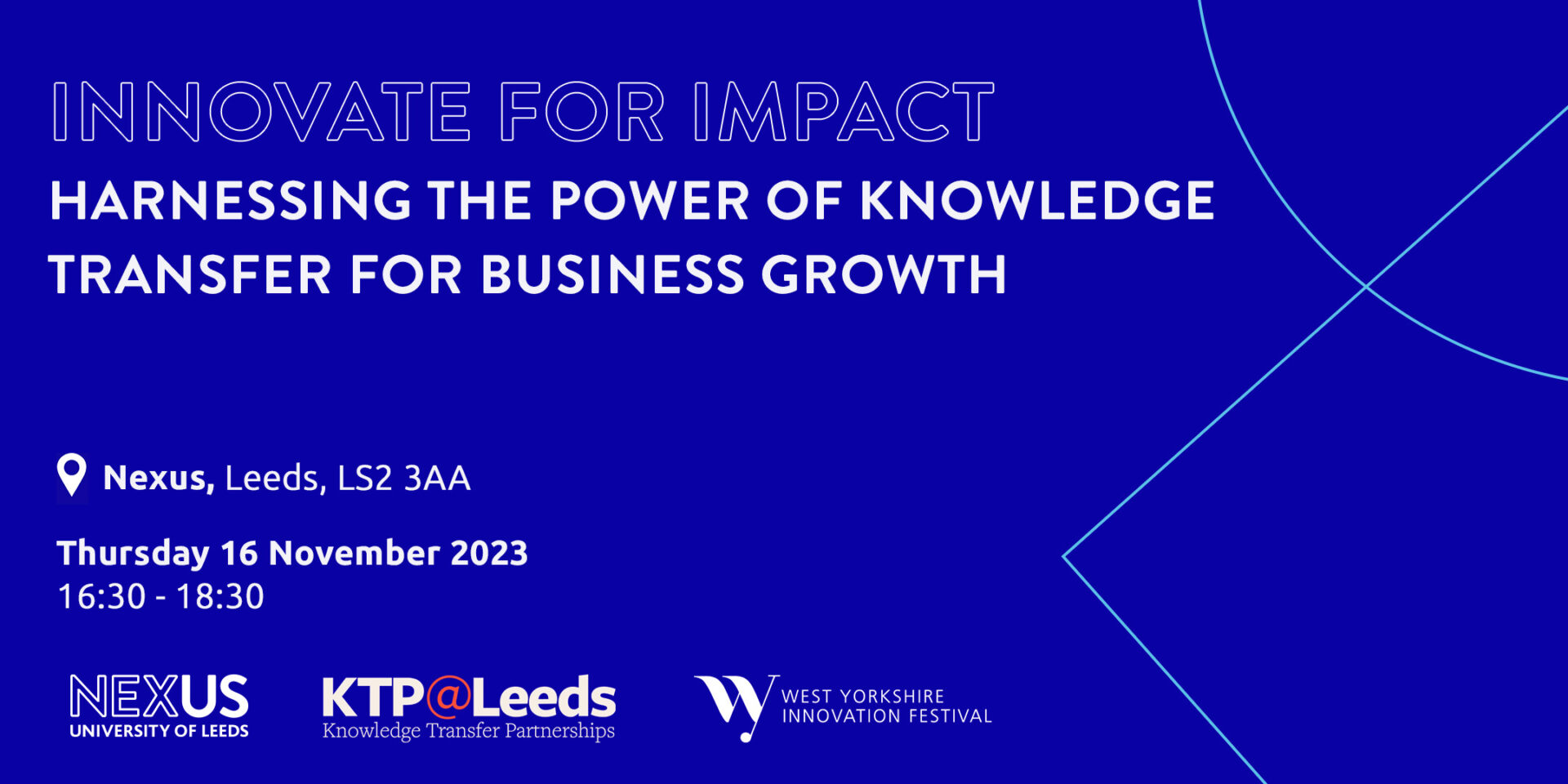Powering innovation with Knowledge Transfer Partnerships
The University of Leeds has an incredible track record of successful Knowledge Transfer Partnerships (KTP) – working on over 100 with both large companies and SMEs, helping to secure over £14m in funding for KTP projects. It is the creativity and innovation of business, combined with the academic expertise and wealth of research from the University that is behind that success.
Want to hear real-life experiences of those who have been through the KTP journey?
Come along to this event to learn how Knowledge Transfer Partnerships (KTPs) can help solve your strategic business challenges.
You’ll hear real-life experiences of LBBC and Andel. We’ll dive deep into the value of KTPs.
What is a KTP?
A KTP will see a graduate or postgraduate (masters or post-doctoral) placed within a business as a KTP Associate, formally employed by the university on a full-time basis. A KTP is a meeting of minds between academia and industry, created to solve a strategic business challenge through highly creative thinking.
The KTP Associate acts as a conduit for knowledge transfer from the university to the business. They possess the required technical expertise to undertake the project, and the ability to adopt a proactive approach.
A KTP gives a business the opportunity to source and embed new expertise and capabilities, as well as access to the latest cutting-edge research and knowledge housed at a university. Not only does this give a business access to the brightest minds around, a KTP can also power innovation within a business, increasing competitiveness, productivity and profitability.
When is a KTP right?
A KTP can be valuable for a range of projects, including introducing a new technology, developing and launching a new product to market, entering a new market, developing more effective ways of working, and improving productivity through new management processes
Benefits to business
- Access to world-class academic knowledge and facilities
- Innovate to increase competitiveness and profitability
- Introduce cutting-edge technologies to transform your business
- Implement new solutions in an efficient and cost-effective way
- Return of up to £8 for every £1 invested
- Part of the company contribution is eligible for R&D tax credits
- Scope to develop a long-term strategic relationship with the university
Download the video transcript here.
The process
When you take part in a KTP, you will receive all the help and support you need to get the most from the partnership. Initially the university will discuss your strategic needs, determine project scope and assess whether your proposed project is likely to be funded by the KTP scheme. They will help write the grant application to maximise the chances of success in both funding and delivery of your objectives and will support the recruitment of a suitable KTP Associate. The university will also deal with the administration required by the KTP scheme and will look at options to fund further work at the end of your KTP project.
Eligibility
UK registered businesses and organisations of any size, including not-for-profit and third sector, are eligible to apply for a KTP.
Funding
KTPs provide a cost-effective way to collaborate with a university. They are part-funded by UK Research and Innovation (UKRI) primarily through Innovate UK, as part of the UK Government’s Industrial Strategy. Typically, for SMEs (<250 employees), the grant covers 67% of the total project costs, while for large organisations (>250 employees), the grant covers 50%.
How to apply
A KTP application is completed jointly by the business and the university, with full professional support in grant writing and post award project management from start to finish.
Applications are open all year round on a rolling deadline basis. For more information on the applications process please contact hello@nexusleeds.co.uk

Want to find out more?
You’ll find out how a KTP will benefit your business at this event.
Sign up here.
